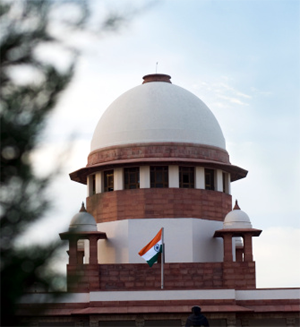Jan 07, 2026
Jan 07, 2026
 In order to avoid a Joint Parliamentary Committee (JPC) probe of the 2G Spectrum scam the government has proposed a CBI probe monitored by the Supreme Court. It passes comprehension how the government can be brazen enough to even make this outlandish proposal. The Supreme Court (SC) should firmly reject the proposal even before the opposition responds to it. The scandalous fiasco enacted during the Jain Hawala case remains too fresh in memory. It left perhaps the worst blot on the reputation of the Supreme Court which monitored the CBI’s investigation of that case. Just recall a few bald facts that emerged from the handling of that case.
In order to avoid a Joint Parliamentary Committee (JPC) probe of the 2G Spectrum scam the government has proposed a CBI probe monitored by the Supreme Court. It passes comprehension how the government can be brazen enough to even make this outlandish proposal. The Supreme Court (SC) should firmly reject the proposal even before the opposition responds to it. The scandalous fiasco enacted during the Jain Hawala case remains too fresh in memory. It left perhaps the worst blot on the reputation of the Supreme Court which monitored the CBI’s investigation of that case. Just recall a few bald facts that emerged from the handling of that case.
01-Dec-2010
More by : Dr. Rajinder Puri